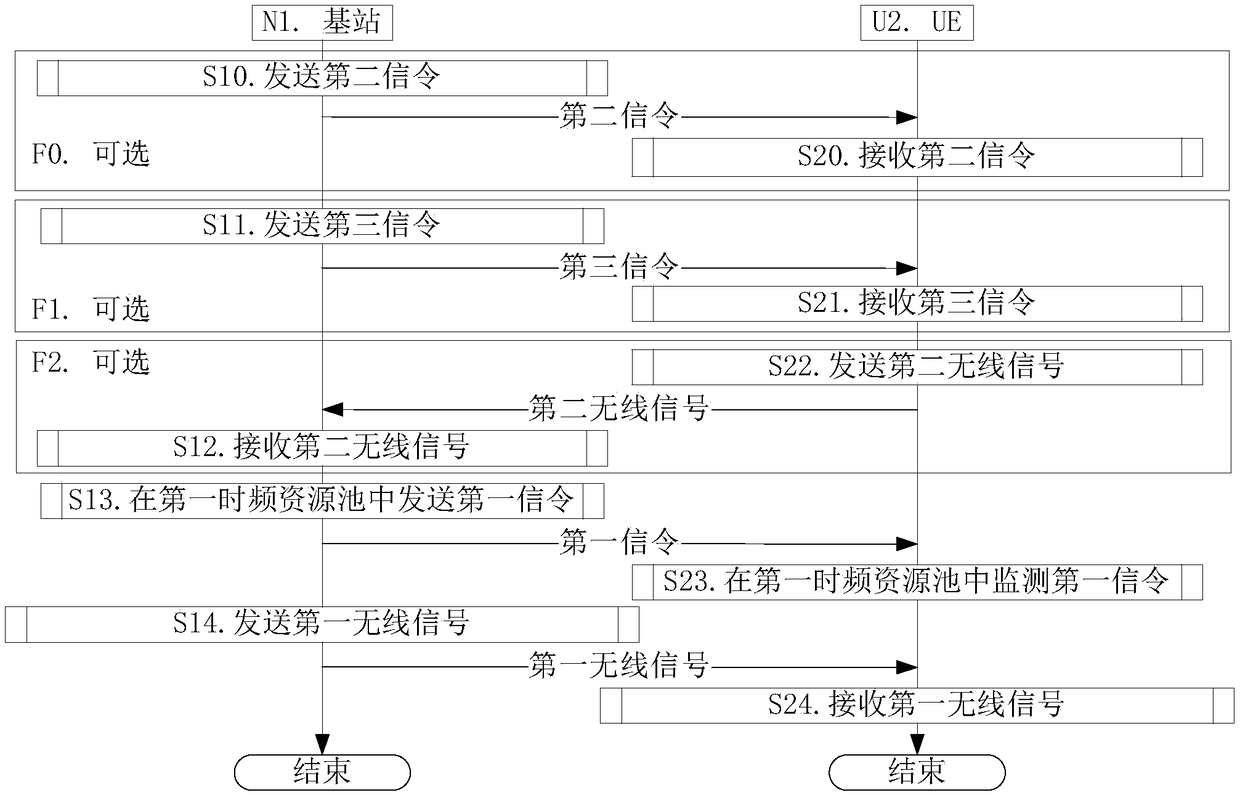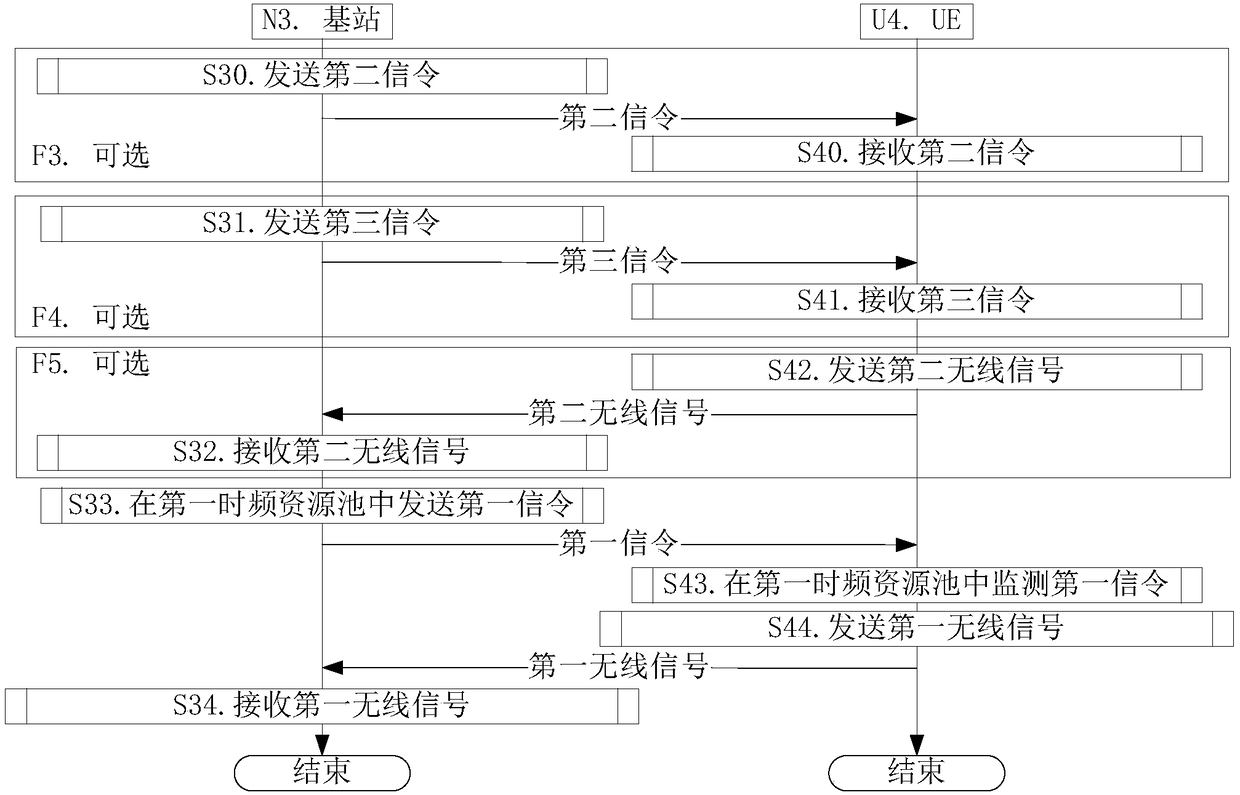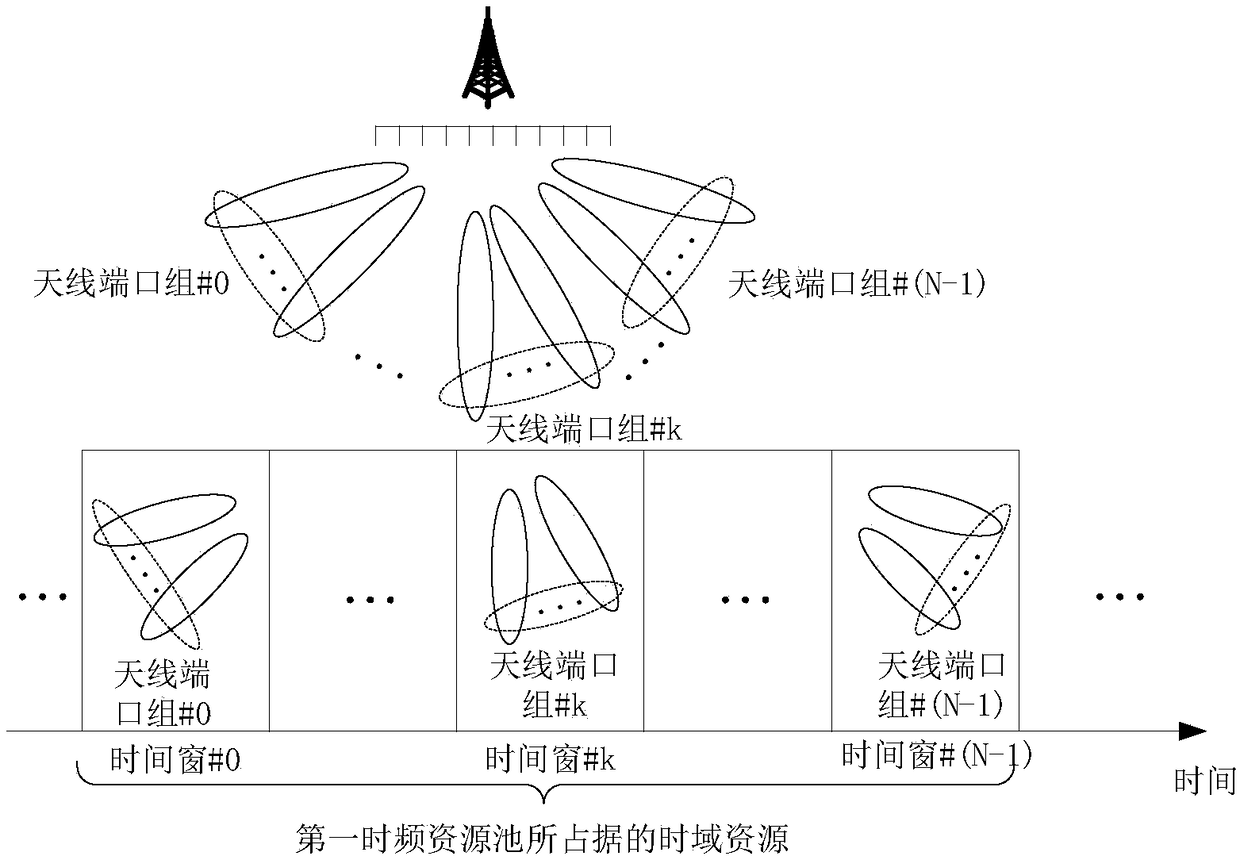Dynamic scheduling methods and devices in base station and UE
A dynamic scheduling and one-to-one correspondence technology, which is applied in space transmit diversity, radio transmission systems, electrical components, etc., can solve problems such as high complexity and complex implementation, so as to improve robustness, realize space diversity, and improve transmission performance Effect
- Summary
- Abstract
- Description
- Claims
- Application Information
AI Technical Summary
Problems solved by technology
Method used
Image
Examples
Embodiment 1
[0198] Embodiment 1 illustrates a flowchart of a first signaling transmission according to the present invention, as shown in the attached figure 1 shown. attached figure 1 In , the base station N1 is the maintenance base station of the serving cell of the UE U2. The steps identified in boxes F0 to F2 are optional.
[0199] for base station N1 , the second signaling is sent in step S10, the third signaling is sent in step S11, the second wireless signal is received in step S12, the first signaling is sent in the first time-frequency resource pool in step S13, and the In step S14, the first wireless signal is sent.
[0200] for UE U2 , receiving the second signaling in step S20, receiving the third signaling in step S21, sending the second wireless signal in step S22, monitoring the first signaling in the first time-frequency resource pool in step S23, and In step S24, the first wireless signal is received.
[0201] As a sub-embodiment, the first signaling is a downlin...
Embodiment 2
[0204] Embodiment 2 illustrates another flow chart of the first signaling transmission according to the present invention, as shown in the attached figure 2 shown. attached figure 2 In , the base station N3 is the maintenance base station of the serving cell of the UE U4. The steps identified in boxes F3 to F5 are optional.
[0205] for base station N3 , send the second signaling in step S30, send the third signaling in step S31, receive the second wireless signal in step S32, send the first signaling in the first time-frequency resource pool in step S33, and In step S34, the first wireless signal is received.
[0206] for UE U4 , receiving the second signaling in step S40, receiving the third signaling in step S41, sending the second wireless signal in step S42, monitoring the first signaling in the first time-frequency resource pool in step S43, and In step S44, the first wireless signal is sent.
[0207] As a sub-embodiment, the first signaling is an uplink grant...
Embodiment 3
[0210] Embodiment 3 illustrates a schematic diagram of N time windows. as attached image 3 As shown, the N time windows are in one-to-one correspondence with the N antenna port groups. Time window #0 corresponds to antenna port group #0, time window #k corresponds to antenna port group #k, and time window #(N-1) corresponds to antenna port group #(N-1). Wherein, k is a positive integer greater than 0 and less than (N-1).
[0211] As a sub-embodiment, the number of antenna ports included in different antenna port groups is the same.
[0212] As a sub-embodiment, at least two different antenna port groups include different numbers of antenna ports.
[0213] As a sub-embodiment, the antenna port is formed by stacking multiple antennas through antenna virtualization, and mapping coefficients from the multiple antennas to the antenna port form a beamforming vector.
[0214] As a sub-embodiment, the number of multi-carrier symbols occupied by any one of the N time windows is th...
PUM
 Login to View More
Login to View More Abstract
Description
Claims
Application Information
 Login to View More
Login to View More - R&D
- Intellectual Property
- Life Sciences
- Materials
- Tech Scout
- Unparalleled Data Quality
- Higher Quality Content
- 60% Fewer Hallucinations
Browse by: Latest US Patents, China's latest patents, Technical Efficacy Thesaurus, Application Domain, Technology Topic, Popular Technical Reports.
© 2025 PatSnap. All rights reserved.Legal|Privacy policy|Modern Slavery Act Transparency Statement|Sitemap|About US| Contact US: help@patsnap.com



